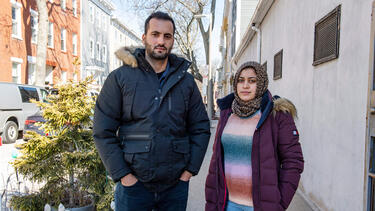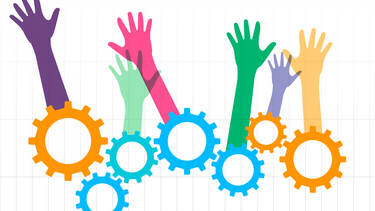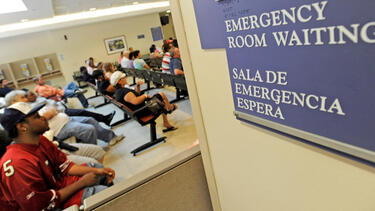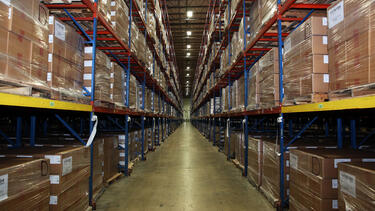Operations
An Interactive Tool Helps School Districts Redesign Their Bus Schedules—and Get Kids a Little More Sleep
Yale SOM operations scholar Zhen Lian and her co-authors created an interactive tool that helped San Francisco reach consensus on school schedules, move start times later, and save millions of dollars in transportation costs.

How Millions of Simulated Maps Can Help Us Make Electoral Districts That Feel Fair
Part of resolving the political redistricting stalemate, writes Professor Jamie Tucker-Foltz, is creating congressional maps that align with human intuition about fairness.

Will Self-Driving Cars Lower Ride-Hailing Prices?
Lower cost is one anticipated advantage of incorporating autonomous vehicles (AVs) into ride-hailing services. But a study co-authored by Prof. Zhen Lian suggests that lower prices will only materialize under certain market conditions, such as using a single app for both AVs and human drivers.

Using Operations Research to Improve the Refugee Resettlement Process
In a new study, Yale SOM’s Vahideh Manshadi and Soonbong Lee and their co-authors propose an algorithm that can yield better employment outcomes for refugees while also reducing caseloads of service providers.

A Better Algorithm Can Bring Volunteers to More Organizations
Yale SOM’s Vahideh Manshadi and her collaborators found that an online platform was steering volunteers toward a small group of opportunities. By building equity into the algorithm, they were able to help more organizations find the volunteers they need.

In the Emergency Department, Patients from Marginalized Groups Are More Likely to be Bypassed in the Queue
In a busy hospital emergency department, White people who speak English and have private insurance are more likely to jump the line and get seen first, according to new research from Professors Lesley Meng and Edieal Pinker and Dr. Rohit Sangal ’21 of Yale New Haven Hospital.

Wastewater Can Reveal How Many of Us Have Gotten COVID-19
New research based on data on COVID-19 RNA in sewage suggests that many more people had been infected with COVID-19 by May 2021 than official case counts indicated.

Study: An Abundance of Media Fuels Polarization
Yale SOM’s Vahideh Manshadi and her co-authors built a model showing that faced with a flood of information, an individual tends to take in material that reinforces their existing beliefs.

Does Scoring a Goal Right Before Halftime Increase a Soccer Team’s Chance of Winning?
Yale SOM’s Nils Rudi and crime novelist Jo Nesbø—a one-time professional soccer player—investigated the myth and found evidence that there is some truth to it. The results may offer lessons for team performance on and off the field.

The Missing Links in the Supply Chain
We asked Yale SOM’s Prof. Sang Kim, an operations expert who specializes in supply-chain management, to unpack the news about delayed shipments and backed-up ports.

How to Distribute Scarce Medical Supplies in a Pandemic—and Do It Fairly
Early in the pandemic, states waited in frustration for medical equipment from the Strategic National Stockpile. New research outlines a better way to efficiently and equitably allot emergency supplies.
